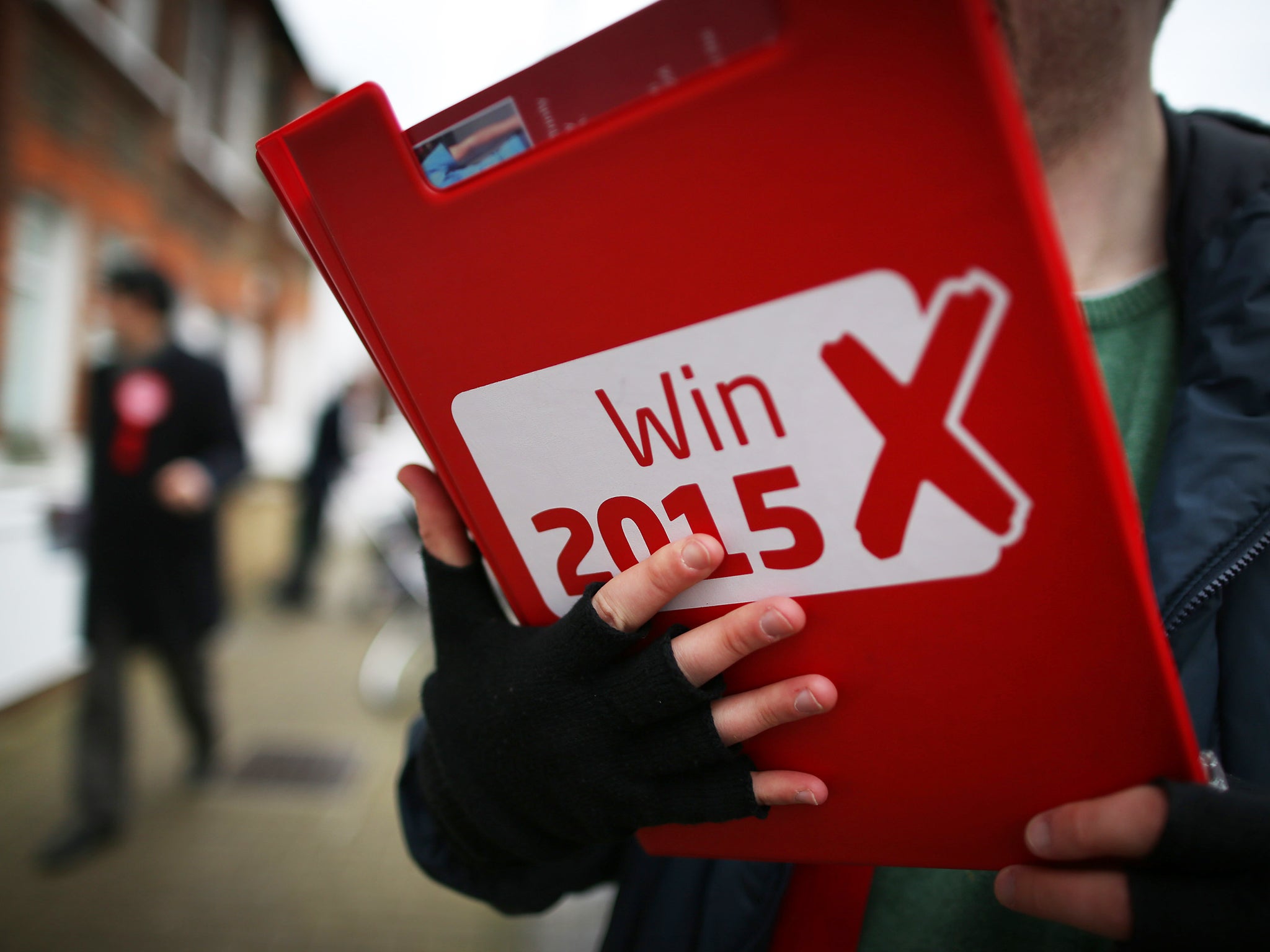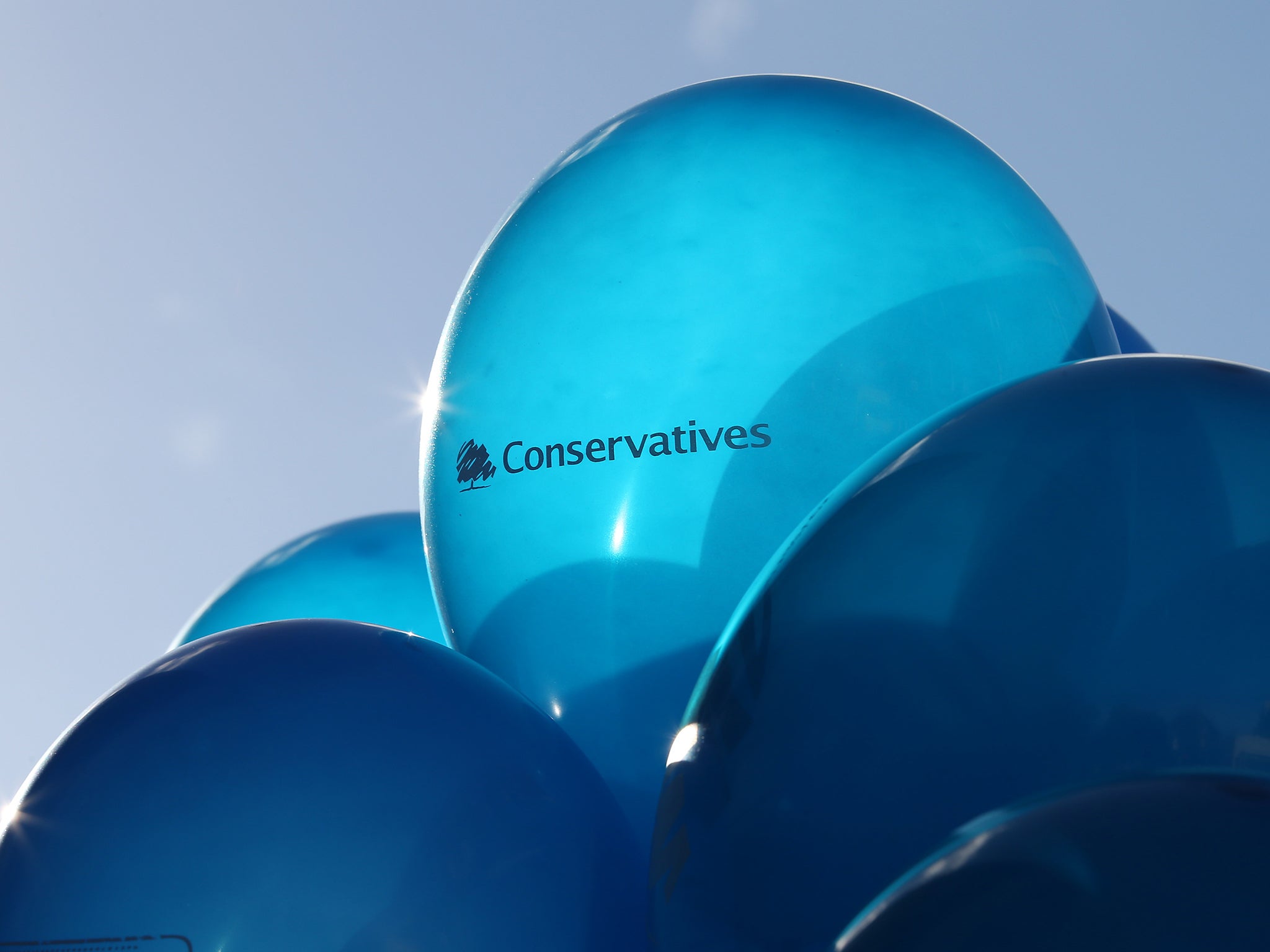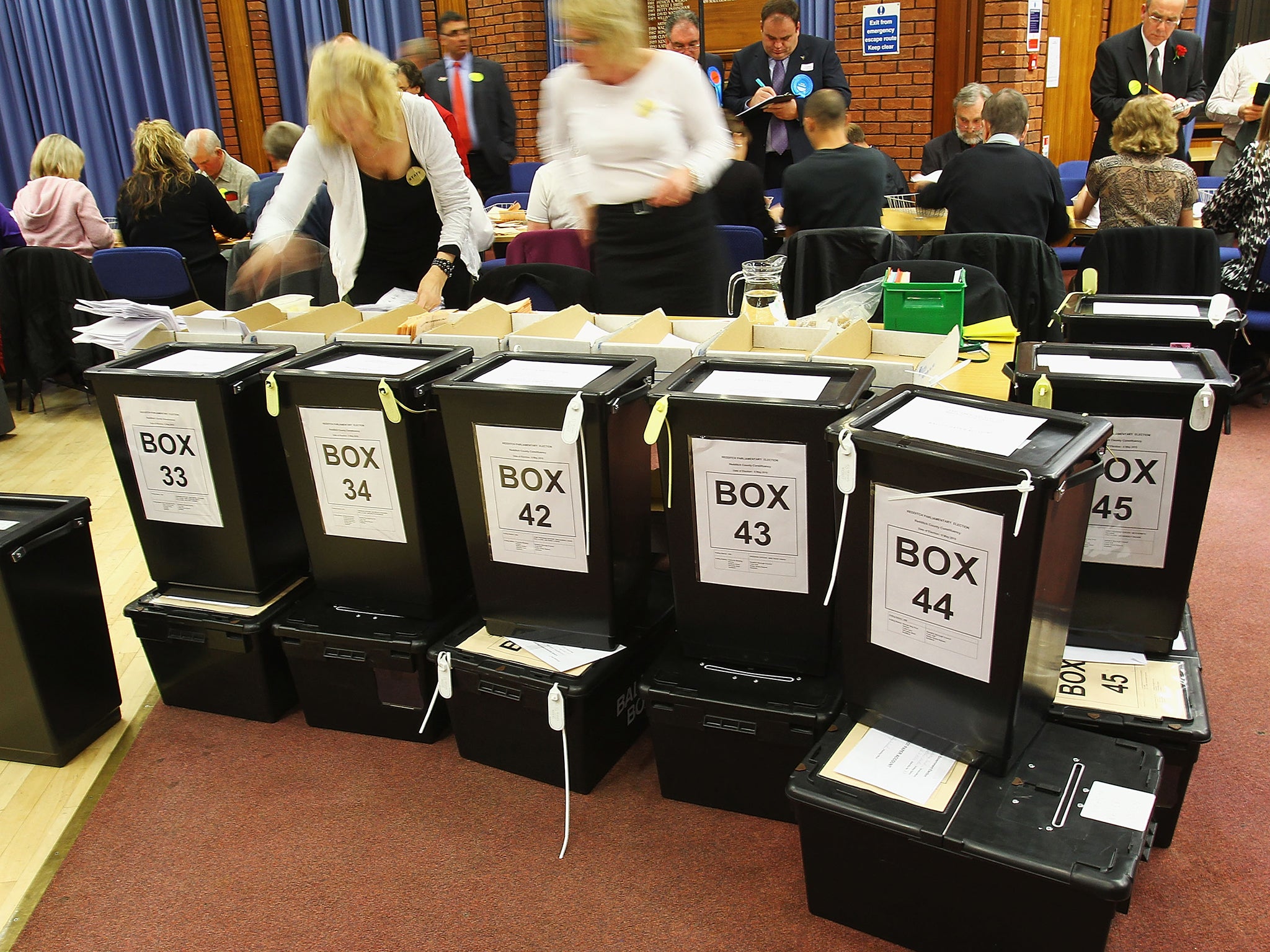General Election 2015: A possible second election this year would expose Labour's funding gap with Tories
Senior party sources are expecting another poll, but depleted coffers will make it tough to match the Conservatives

Your support helps us to tell the story
From reproductive rights to climate change to Big Tech, The Independent is on the ground when the story is developing. Whether it's investigating the financials of Elon Musk's pro-Trump PAC or producing our latest documentary, 'The A Word', which shines a light on the American women fighting for reproductive rights, we know how important it is to parse out the facts from the messaging.
At such a critical moment in US history, we need reporters on the ground. Your donation allows us to keep sending journalists to speak to both sides of the story.
The Independent is trusted by Americans across the entire political spectrum. And unlike many other quality news outlets, we choose not to lock Americans out of our reporting and analysis with paywalls. We believe quality journalism should be available to everyone, paid for by those who can afford it.
Your support makes all the difference.Senior members of the shadow Cabinet believe there will be a second general election this year – but fear that Labour will not have enough money to fight the Conservatives again on even terms.
Politicians are contemplating the likelihood of a second poll later this year as a hung parliament looks inevitable. They worry that forging a stable coalition could prove impossible for either Labour or the Tories because of the complicated electoral maths, and that even a looser arrangement with a smaller party to support a minority government may be untenable.
But a second election in one year, a situation that last occurred in 1974, would leave Labour’s precarious finances badly exposed. The party has been paying off heavy debts from the 2005 and earlier general elections for years. Its fundraising is also expected to fall several million short of the £19.5m central campaign cap for this election.
By contrast, a senior Tory who sits on the board of Conservative Central Office confirmed that the party will have “single-figure millions” left in the party’s account after the election, having raised more than the spending cap. The source would also expect fresh donations should a second election take place.

The source added: “The Conservative Party has been well funded and we should be able to come through this election with a small surplus still available.”
A source close to the Prime Minister even said the Conservatives have “done better” with the party accounts than they had with the nation’s finances.
A Labour source said: “The Tories have built up a considerable war chest – they’ve raised more than £15m more than we have since the last election and that does leave us struggling to keep up. The funding gap is very real and very current and leaves us battling and struggling to keep up. We think, though, that we have a harder working and more effective activist base.”
Labour has been relying on smaller donations and merchandise sales to fill its coffers. The party has done well online, having hit the £2m mark in only 12 months with a £5 donation from a woman in Pontypridd last week. Limited-edition tea towels at £12 each proved an “unexpected hit”, according to the party source. Featuring vintage campaign posters, the tea towels raised more than £250,000 before the offer ended in March.
Although a second election is difficult to trigger because of the Fixed-Term Parliaments Act introduced by the last government (see Q&A, below), the chances of a repeat poll are increasing. Ladbrokes has slashed the odds of a second election this year from 10-1 in October to 4-1 today, which a bookie spokesman claimed was still a “massive value bet”.
If Labour emerges as the largest party but well short of the 326 seats required for a majority, it would struggle to make a pact with the Scottish National Party without dividing its own members and MPs. The Liberal Democrats might not win back sufficient seats to propel either of the two biggest parties to power and, even if they did, their activists might well vote down another term in office in exchange for five years of diluting their principles.
Although Labour would have little money to fight another campaign this year, party sources suggested that it has built up a superior network of activists.
In Labour’s last available financial accounts, for 2013, treasurers Iain McNicol and Diana Holland admitted that the Conservatives will “massively outspend us”, but pointed out that the party had more full-time organisers in key seats “than we’ve ever had in the run-up to any previous election”. They also warned that the party’s renewed financial discipline “must be maintained both throughout the campaign and beyond”.
Senior party sources also argued that Labour could expect to fare much better in Scotland in a second election than the first; some polls have suggested that the SNP could win 50 of the 59 seats available north of the border. Labour has been working hard to improve its campaign organisation since the Scottish referendum last year, but it is thought that this might have developed too late to have a significant impact in next month’s poll.
A Labour candidate who is defending a Scottish seat said that the party was making an “unprecedented” number of contacts with Scottish voters, which would prove fruitful in later campaigns. There is also a belief that many voters are voting SNP as a one-off out of guilt for not voting for independence.
The news emerges as senior Conservatives have started to grumble over campaign errors. They are still annoyed about Michael Fallon’s highly personal attack on Ed Miliband 10 days ago, when the Defence Secretary said he had “stabbed his own brother in the back to become Labour leader”.

Mr Fallon also argued that Mr Miliband could not be trusted to defend the country, but the Labour leader replied that the Defence Secretary was a “decent man” who had nevertheless “demeaned his office” through the attack. A Tory seeking re-election said: “It’s never a good idea to go personal and this just made Ed Miliband look statesman-like – his response was exactly right. It went down very badly.”
Q&A: Election round two?
Why might there be a second poll?
If neither Labour nor the Conservatives can form a government with the support of Lib Dems and the Northern Irish Democratic Unionist Party, the SNP would hold the balance of power. It would not be much of a “balance” to start with, because Nicola Sturgeon has said the SNP would never prop up a Tory government, so Ed Miliband would become prime minister. But it could combine with the Tories at any time to bring the government down. The problem for Ms Sturgeon is that this would look as if the SNP were helping the Tories. The other possibility is Mr Miliband might want a second election, if his minority government proved reasonably popular, as Harold Wilson did in October 1974.
What is the effect of the Fixed-term Parliaments Act?
Mr Miliband could not do what Wilson did in 1974, because a prime minister no longer has the power to seek to dissolve parliament. Mr Miliband would have to ask the Conservatives to support an immediate election, needing a two-thirds vote in the Commons, but it is unlikely both main parties would think an election was in its interest. Or he could ask Ms Sturgeon to agree to an early election – by passing a vote of no confidence in his own government, triggering an election after 14 days.
What if Cameron just clings on?
If a coalition of Tories, Lib Dems, DUP and Ukip broke up or lost its majority, Mr Miliband would be able to form an alternative government if he could persuade the Lib Dems or DUP to switch sides. But that government would still need SNP support.
John Rentoul
The Independent has got together with May2015.com to produce a poll of polls that produces the most up-to-date data in as close to real time as is possible.
Click the buttons below to explore how the main parties' fortunes have changed:
All data, polls and graphics are courtesy of May2015.com. Click through for daily analysis, in-depth features and all the data you need. (All historical data used is provided by UK Polling Report)
Join our commenting forum
Join thought-provoking conversations, follow other Independent readers and see their replies
Comments